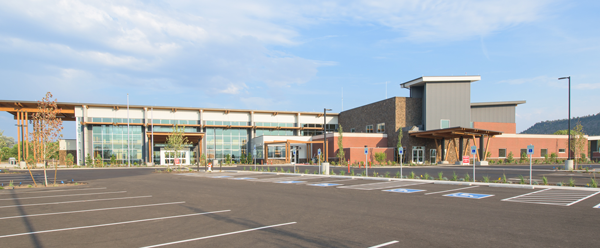Living better with celiac disease
The only treatment for celiac disease is to avoid eating gluten, the protein found in wheat, rye and barley. Consuming even small portions can hurt the intestines, so the diet should be based on naturally gluten-free foods. Those include fresh fruits and vegetables, milk and dairy products, lean meats, fish and shellfish and gluten-free grains like rice, amaranth, millet, buckwheat and corn. Many processed foods contain gluten, and many gluten-free foods are still at risk for cross-contamination in the factories where they are made.
St. Charles Nutrition Center registered dietitian nutritionists can help you overcome the challenges of a gluten-free diet and ensure that you get the proper nutrients to help heal and prevent intestinal damage.
Dietary help for Crohn’s disease
Crohn’s disease isn’t caused by the foods eaten, but some foods can cause inflammatory flare-ups plus abdominal pain, diarrhea, bloating and cramping. Limiting dairy products and certain dietary fiber and following low-fat or low-residue diets is recommended. Crohn’s can cause deficiencies in iron, vitamins B-12, C and D, folic acid and other important nutrients. Our dietitians can determine which foods are problematic for you and develop an eating plan that’s nutritionally sound while helping you manage uncomfortable symptoms.
Proper nutrition for diverticulitis?
Diverticula are small pouches that form in the wall of the large intestine. When they are infected or inflamed, this painful condition is called diverticulitis. There is no cure, but eating foods that are rich in fiber has been shown to help control symptoms like nausea, bloating and constipation. A registered dietitian nutritionist can advise you on how much fiber is right for you and help you build it into your meals. They can also create a liquid diet plan to follow during flare-ups and recommend supplements to ensure that you get the proper nutrition.
Treating IBS
Irritable bowel syndrome (IBS) is a common and chronic condition that affects the large intestine. IBS causes uncomfortable and embarrassing symptoms such as diarrhea, bloating and gas. It can also lead to acute abdominal pain. It’s believed to be caused by irregular contractions of the intestinal tract or irregularities in the gastrointestinal nervous system. Dietary changes that can help include eliminating spicy and fatty foods and gluten, plus reducing hard-to-digest carbohydrates called FODMAPs, which are found in common grains, fruits and vegetables, and dairy products. Eating smaller, more frequent meals can be beneficial.
Improving gastrointestinal conditions through proper nutrition
Abdominal and intestinal conditions can be very difficult to live with, but working with a St. Charles registered dietitian nutritionist can help make a difference in your symptoms through proper nutritional choices.
St. Charles Health System in Central Oregon strives to help people with gastrointestinal issues lead normal, healthy and happy lives.



